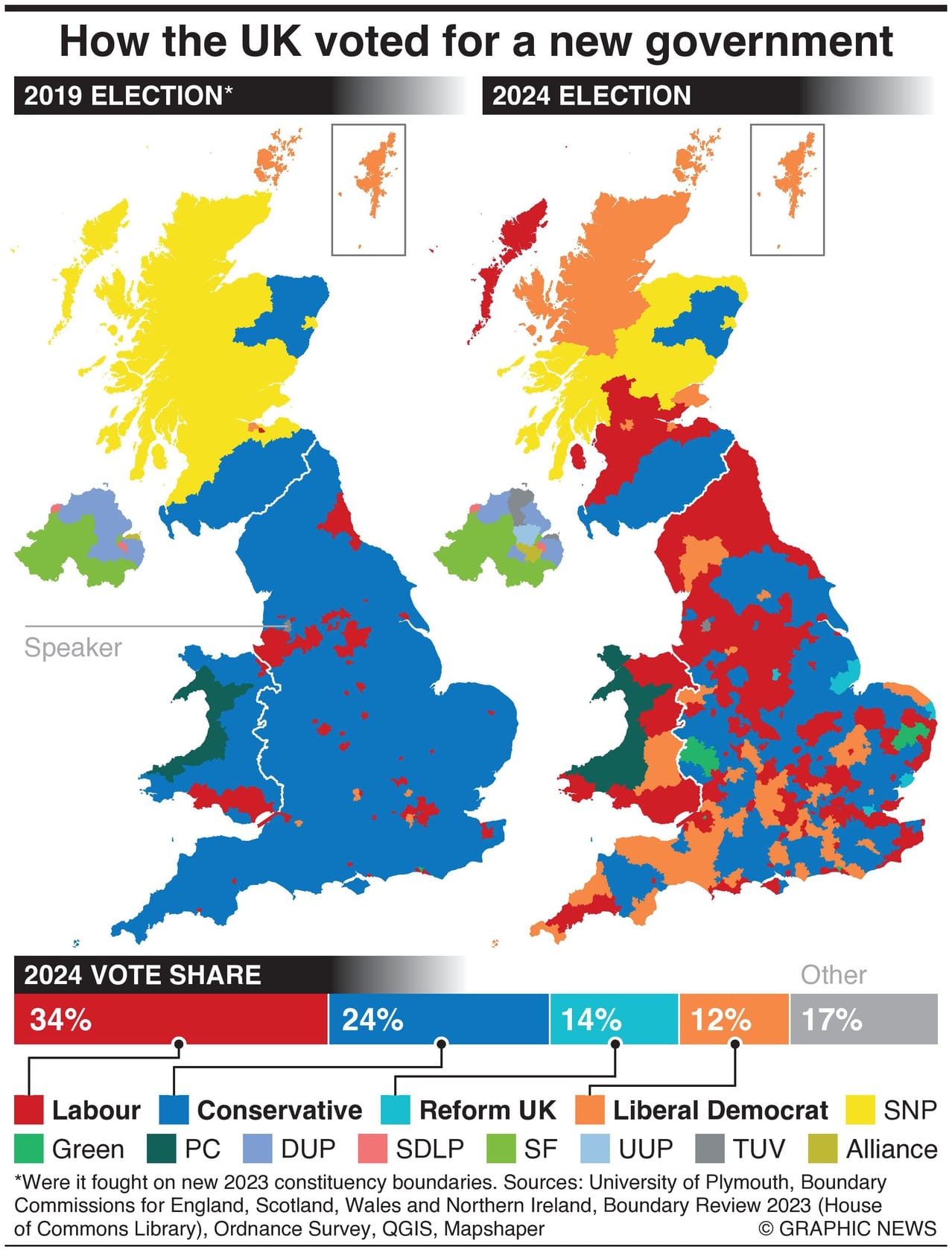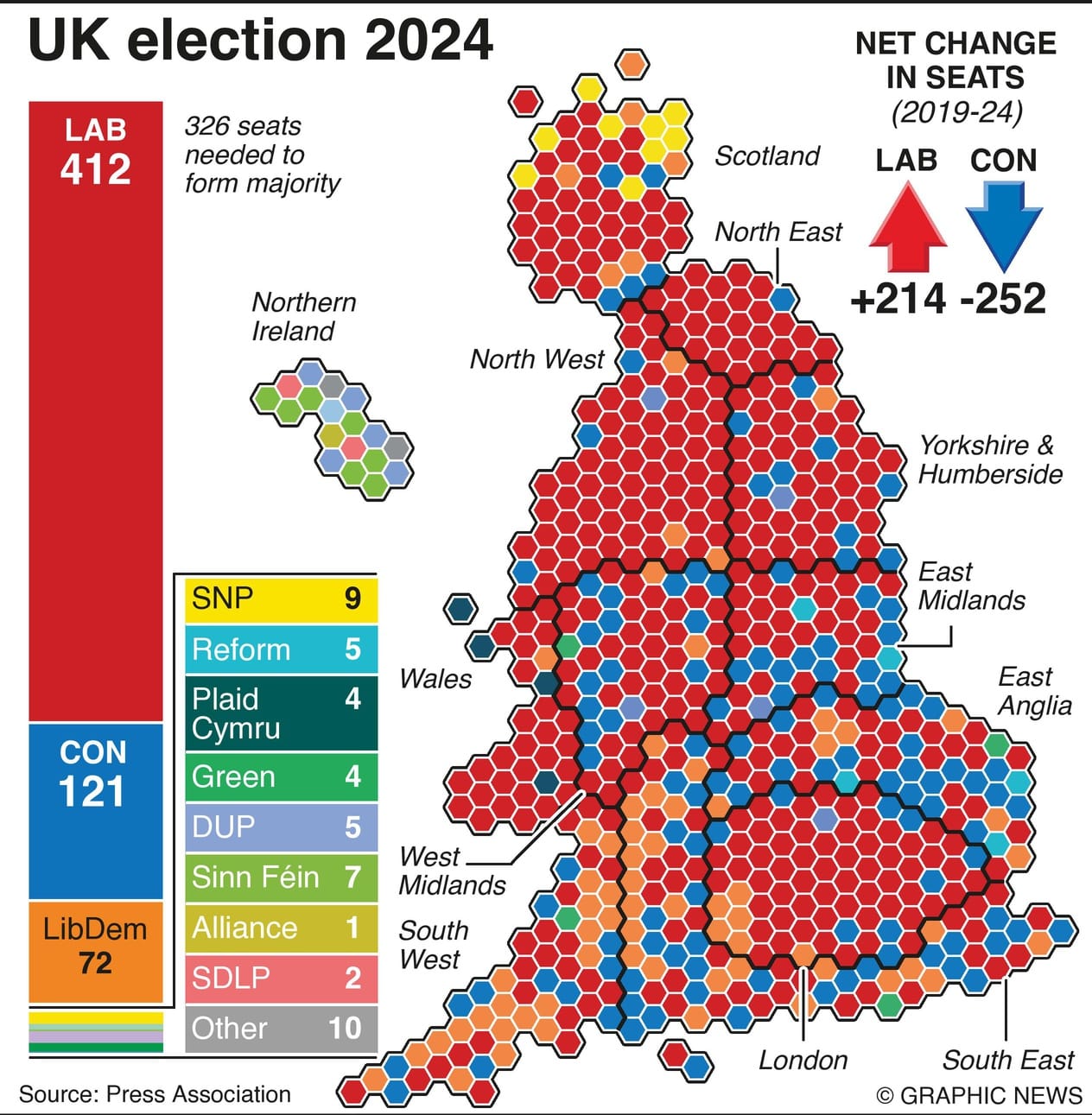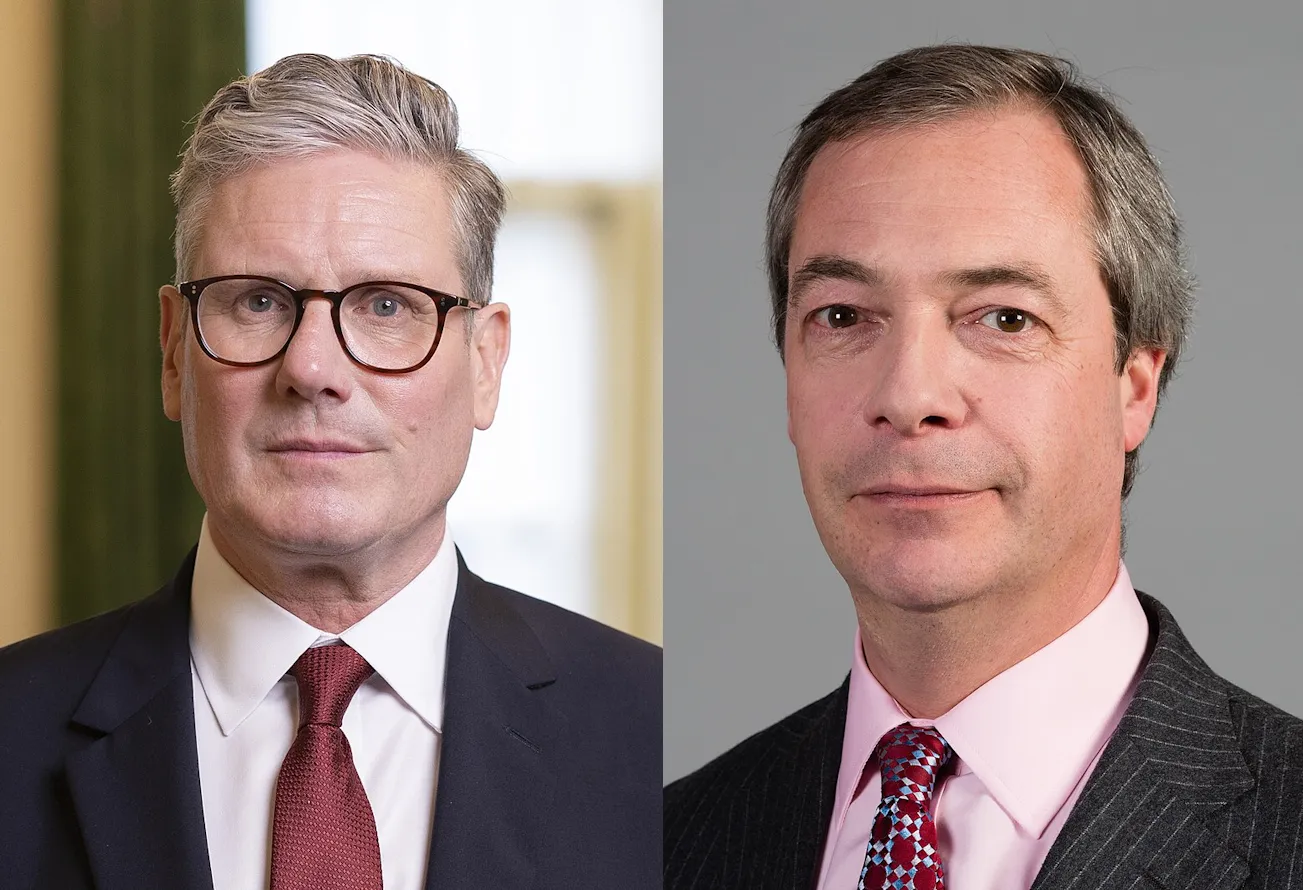Power changed hands in the United Kingdom recently. Still, the multi-party constitutional monarchy bucked the trend on the European continent and voted the left-of-center Labour Party to a landslide victory. Many records were set and shattered in the 2024 elections. For one, just about sixty percent of voters turned out to vote, the second-lowest voter turnout for a general election since 1885.
The incumbents, the Conservatives, had their worst showing in history. After being in power for nearly a decade and a half, the Party polled just a quarter of the votes. Shockingly, eleven Conservative cabinet ministers lost their seats in the election. In their fourteen years in power, the UK was ruled by five different prime ministers.

A deeper analysis of the available election results sheds light on a much-nuanced picture that is hardly black and white. Despite the historic win of nearly two-thirds of the 650 parliamentary seats in the House of Commons, the Labour Party has only managed to get a 35 percent vote share. Furthermore, the Party's overall vote share increased by less than two percentage points since its last outing.
The right-wing populist Reform UK, founded in November 2018 as the Brexit Party, won 14 percent of the overall votes and came second in several constituencies. After making such impressive inroads, Nigel Farage, the Reform leader, became a Member of Parliament on his eighth attempt. The Party's increase in vote share (nearly a dozen percentage points), advocating for the freeze of all 'nonessential immigration' and the protection of 'British culture and values,' is likely to be concerning for ethnic minority Britons and marginalized communities.

UK's newest Prime Minister, Sir Keir Starmer, is a barrister-turned-politician. In 2008, he was appointed the Director of Public Prosecutions, the highest-ranking criminal prosecutor in England and Wales, and was first elected to the parliament in 2015. Relatively new to politics, Sir Keir took over the reins of the Labour Party after the 2019 general election. In his first address to the nation after taking office, Sir Keir promised to "rebuild British public services such as the NHS, slash energy bills and secure the country's border."

Despite enjoying the largest majority of any party since 1832 in the UK, the road ahead of the Labour government is tough. The island kingdom is struggling to recover from the disruption caused by the COVID-19 pandemic, which set in at a time when the country was still dealing with its shocking exit from the European Union after the Brexit referendum. The Russian invasion of Ukraine has caused energy costs to soar, and the National Health Service (NHS) is in a crisis.
Sir Keir's Party has come to power promising a "Mission-driven" government willing to tackle long-standing problems and provide long-term solutions. His government is committed to delivering clean energy, growth, safer streets, an efficient NHS, and reducing regional inequality. On the international front, the new government will have to work to reduce trade barriers with the EU despite its decision to stay out of the customs union and the bloc. Having signaled that the UK will continue to support Ukraine, the new Prime Minister also expressed support for a Palestinian state but "at the right time in a peace process."
It is hoped that the huge majority awarded by the electorate will enable the Labour Party and Sir Keir Starmer to make tough decisions and bring a fresh perspective to the country's long-standing issues. As the economy begins to look up, ending policy volatility and the short-termism that had plagued the successive Conservative governments could turn the tide for the country. The people of the United Kingdom are looking for a scandal-free government that can rebuild the nation.







